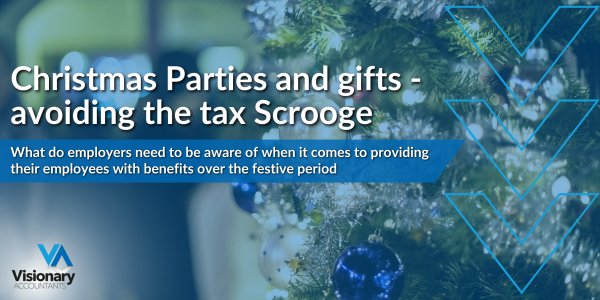Christmas parties and gifts – what you need to know, know, know!
’Tis the season of giving and that time of year when employees can look forward to an extended break and, if they’re lucky, a Christmas party! But what do employers need to be aware of when it comes to providing their employees with benefits over the festive period so that they aren't giving away taxes to the Christmas Scrooge? In this article, we hope to shed some light on the key things you need to be aware of when it comes to functions and gifts, so you can ‘jingle all the way’ into the festive season.
Office Christmas Parties
Can I claim the Office Christmas Party as a business expense?
A common perk for employees is the office Christmas party. This allows companies to get all staff members together, to celebrate the festive season. But what do employers need to be aware of to ensure this perk doesn’t become ‘taxing’ on their employees?
How much can an employer spend?
A tax exemption is available for annual functions, up to £150 per head. This is specified at section 264 of Income Tax (Earnings and Pensions) Act (ITEPA) 2003.
The top takeaways here are:
- this is an exemption; not an allowance
- the value is truly 'per head' and not limited to employees; so can include partners, children etc.
- this amount includes VAT... bah humbug!
Is this limited to one party a year?
The exemption applies to ‘parties and functions’ (which we will refer to as an event / events), so more than one event can occur.
The top takeaways here are that, in a tax year:
- if only one event takes place, the cost per head must not exceed £150
- if multiple events take place, for example, a summer barbeque and a Christmas party, the cost per head must not exceed £150 for both events.
What is covered by the exemption?
The cost per head of the event must include:
- the value of the event itself
- any transport provided
- any accommodation provided
- any value added tax (VAT) incurred on any of the above.
What if an employer spends above £150 per head?
If multiple events take place and the cost per head exceeds £150 combined, then only one of the events can be covered by the exemption. Using the above example to highlight this, if the summer barbeque cost £50 per head, and the Christmas party cost £110 per head, the employer would be savvy to use the exemption for the Christmas party, and the summer barbeque would need to be dealt with separately.
If parties aren’t your thing, how about a gift?
If employers wish to provide a gift to their employees to celebrate the festivities, then utilising the trivial benefit tax exemption may be for you. This exemption is specified at section 323a of ITEPA 2003.
There are four conditions that must be met for the exemption to apply. These conditions are:
- the benefit isn’t cash or a cash voucher
- the cost of the benefit doesn’t exceed £50
- the benefit isn’t provided as part of any contractual obligation (including under salary sacrifice arrangements)
- the benefit isn’t provided in recognition of services performed, or anticipated to be performed, by the employee.
There is no limit on the number of trivial benefits provided to employees throughout the tax year. Typically, the benefit would be triggered by an event, for example, a birthday, Christmas or the birth of a child. However, for directors of ‘close’ companies, the rules are slightly different, in that they can’t receive trivial benefits of more than £300 in a tax year.
By using the trivial benefit exemption, you could provide your employees with a turkey ready for Christmas dinner, a gift hamper, bottles of wine or a magazine subscription. The possibilities are endless, providing you meet the above four conditions.
Providing a gift that isn’t so trivial
If you really want to spoil your employees this festive season, and wish to spend over the trivial benefit exemption of £50, what happens then?
The first option would be to report the cost of the event or gift to HM Revenue and Customs as a taxable benefit-in-kind. This would be done via a P11d or through real time information (RTI) if you’ve registered to payroll benefits. This results in a tax charge for the employee, and a class 1A National Insurance (NI) charge for the employer.
We're sure most employers wouldn’t want their employees to pick up the tax bill of attending an event or receiving a Christmas gift, so the second option would be for employers to have the event or gifts covered on a pay as you earn (PAYE) settlement agreement (PSA).
A PSA allows employers to cover the tax and NI due on minor, irregular or impracticable expenses or benefits provided to employees. By choosing this option, the employer does need to be mindful that this will cost them more in the long run, as they’ll be covering the tax due, based on the employee’s rate of income tax.
How Visionary Accountants are celebrated this year
“This year the Visionary Accountants team had the pleasure of a Christmas meal at The Hub in St Albans. We enjoyed a ‘cracking’ time, and the Friday event meant that our team of accountants and bookkeepers were fresh faced for the Monday morning start back in the office. Visionary Accountants are a Limited company, so we used a portion of the £150 per head allowance, ensuring that we didn’t fall foul of the tax Scrooge.”
Tena Wallace, Visionary Accountants, St Albans
